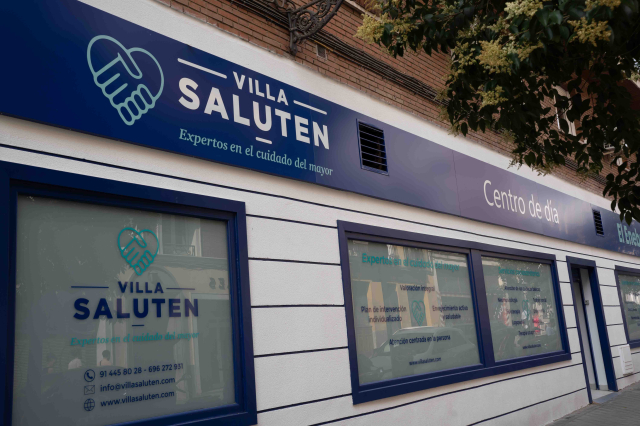Day centres are facilities designed to provide care and activities to older people during the day. Their aim is to promote the well-being, socialisation and autonomy of the elderly in an environment adapted to their needs. Unlike residential homes, day centres do not provide overnight accommodation, allowing users to return home at the end of the day. These centres provide a variety of recreational activities and medical care services that contribute to improving the quality of life of the elderly.
What is a day center?
This is a fundamental resource in the care of the elderly. These centres offer a space where well-being is fostered, favouring the independence of users.
Definition and characteristics
Day centres are facilities designed to provide care and assistance to elderly people during the day. They operate on the basis of comprehensive care, combining different types of services that improve the quality of life of users.
- They provide a social environment where seniors can interact and participate in group activities.
- They offer specialized care from professionals in geriatrics and other health fields.
- They allow the elderly to return to their homes at the end of the day, thus maintaining their autonomy.
Differences between day centre and residence
It is important to distinguish between these two types of services, as each one performs different functions in caring for the elderly.
- Day care centre: Provides care and activities during the day, with no overnight accommodation. Users return home, allowing for a familiar environment.
- Residential home: Provides permanent accommodation and 24-hour care. It is intended for people who require constant care and cannot live alone.
These differences determine the function and type of care provided, both of which are essential in supporting the elderly according to their needs.
Types of day care centers
Day care centres can be classified according to a number of criteria, taking into account their funding and the type of care they offer. This classification allows users and their families to choose the most suitable option according to their individual needs.
Public, private and mixed centers
Day centres are divided into three main categories, based on their legal ownership:
- Public Centres: Funded and managed by the administration, they usually offer free or low-cost services, guaranteeing access to a large population of seniors.
- Private centres: These operate with private funding and can serve users at higher rates. Some of them have places arranged with the public administration.
- Mixed Centers: They combine characteristics of public and private centers, collaborating with government entities to offer an inclusive service.
Centers for the able-bodied and assisted
Depending on the capabilities of the users, we can distinguish between:
- Centers for the Able: Aimed at older people who maintain a level of autonomy and seek to participate in recreational and social activities.
- Assisted Centers: Focused on providing support to those who require assistance in their daily activities, ensuring their well-being.
Centers specialized in degenerative diseases
There are centers dedicated to caring for people with specific pathologies, such as:
- Alzheimer's specialist centres: Designed to offer specific care to those suffering from this disease, promoting cognitive stimulation and activities adapted to their needs.
- Centers for other degenerative diseases: These centers have staff trained in the management of various pathologies, offering a comprehensive approach tailored to each case.
Activities and services at day centres

Day care centres offer a variety of activities and services designed specifically for the needs of seniors, promoting their well-being and improving their quality of life. These activities range from recreation to medical care.
Recreational and educational activities
The recreational approach in day centres is essential to keep the mind and body active.
Craft workshops and talks on topics of interest
Creative workshops are organised to allow users to express their creativity, while talks cover a variety of topics, such as health, culture and personal well-being, encouraging participation and continuous learning.
Cooking and mental agility courses
These courses not only offer practical skills, but also stimulate memory and logic through exercises and games that improve mental agility, contributing to active aging.
Medical and care services
Medical care is another of the great advantages that day care centers provide, guaranteeing the health of the elderly.
Medical care and nursing
Regular consultations with doctors and nurses ensure constant monitoring of the health status of users, addressing their medical needs and providing appropriate treatments and medication.
Rehabilitation and physiotherapy
Specialized programs are offered to help with injury recovery or maintaining mobility, facilitating physiotherapy practices adapted to each person's abilities.
Social services and emotional support
Day care centres also strive to provide emotional and social support. Comprehensive care is vital to help seniors deal with emotional issues and foster a positive environment in their daily lives.
Psychology and emotional support
Therapists and psychologists are available to offer assistance to those in need, addressing issues such as anxiety and depression.
Socialization activities
Hosting social gatherings and special events fosters interaction and a sense of community among attendees, allowing them to form meaningful connections.
Benefits of attending a day center
Attending a day care center offers multiple advantages for seniors. These benefits impact both the quality of life of users and the well-being of their families.
Promoting personal autonomy
Day care centres are designed to promote independence in older people. Through adapted activities, they are encouraged to develop and maintain skills that enable them to carry out everyday tasks. This helps them to retain a sense of control over their lives and avoid over-dependence on others.
Improving quality of life
The quality of life of seniors is greatly improved by attending a day care center. By participating in various activities, these individuals have the opportunity to stay active both physically and mentally. Some specific benefits include:
- Access to healthy meals tailored to your nutritional needs.
- Treatments and therapies that contribute to your physical and mental well-being.
- Opportunities to learn new skills and knowledge, which stimulates the mind.
Socialization and active aging
Socialization is one of the main benefits of attending a day care center. Seniors interact with others of their own age, which helps them form new bonds and friendships. This social networking is essential to combat loneliness and isolation, common elements in the lives of many seniors. Participation in group activities promotes active aging, where each individual feels valued and in a mutually supportive environment.
Day care centres for the elderly in Spain
The variety of day centres in Spain ensures that seniors can access services tailored to their needs and preferences. These facilities are spread across various cities and communities, offering specific care and activities.
Day care centers in Madrid
In Madrid, there is a wide network of day centres that offer multiple services. These centres focus on providing recreational activities, medical care and therapies adapted to the elderly. Among the options you can find public centres managed by the City Council and private centres with different rates and programmes.
Day care centres in Valencia
Valencia also excels in caring for the elderly with various day centres that promote socialisation and well-being. The offer includes physical activities, creative workshops and professional assistance. These centres are designed to meet the needs of the elderly in the region, guaranteeing a pleasant and safe environment.
Access and places in the centres
Access to day care centres may vary depending on the type of service (public, private or mixed), as well as the availability of places. Many of these centres generate waiting lists to ensure that all elderly people can receive adequate care. Requirements to access these services include an initial assessment and, in some cases, the need for assistance in daily activities.
The importance for caregivers and family members
Caring for older people can be a significant challenge for caregivers and family members. Day care centres play a vital role in providing support to both older people and those who care for them.
Relief and rest for caregivers
Caregivers often experience high levels of stress as they take on a number of responsibilities and obligations. Attending a day care center allows caregivers to enjoy a temporary respite, which is crucial for their personal well-being. This relief translates into several aspects:
- Opportunity to rest and recharge.
- Possibility of taking care of your own needs and activities.
- Reducing the risk of physical and emotional exhaustion.
This free time can also contribute to a more positive and healthy relationship between the caregiver and the elderly person, promoting a less tense and more understanding environment.
Social responsibility and comprehensive care
Caring for the elderly involves a significant social responsibility. Choosing to use day care centers reflects a commitment to comprehensive care for the elderly. This choice not only facilitates physical care, but also promotes the emotional and social health of the elderly. The benefits are multiple:
- Promotion of social activities that reduce the feeling of loneliness.
- Personalized care that responds to specific health and wellness needs.
- Improves quality of life, which translates into better family life.
In this way, a more balanced approach to care is established, where both the elderly person and their family can benefit from quality care and ongoing emotional support.
How to choose a suitable daycare center
Choosing a suitable day care centre is crucial to ensuring the well-being and satisfaction of seniors. There are several factors to consider to ensure an informed and appropriate selection.
Considerations and selection criteria
When evaluating a day care center, it is important to take into account various aspects that directly influence the quality of the service offered. Some of the criteria to consider include:
- Location: Proximity to the senior's home facilitates access and minimizes transportation stress.
- Facilities: The conditions of the facilities must be reviewed, ensuring that they are accessible and suitable for the user's needs.
- Staff: It is essential that the staff is trained in geriatric care and is friendly and professional.
- Activities: Check the variety of activities offered and whether they are adapted to the interests and abilities of the elderly person.
- Costs: Analyze prices and financing options and make sure they fit within your family budget.
Request information and visit the center
Before making a final decision, it is advisable to obtain detailed information and visit the center. This phase may include the following steps:
- Meetings with staff: Speak directly with the professionals who work at the center to learn about their approach and methodology.
- Guided tours: Taking a tour of the facilities allows you to observe the atmosphere and dynamics of the place.
- Meetings with other users: Talking to people who already attend the center can provide insight into the quality of service.
Taking the time to investigate and assess will make a big difference in the day-to-day experience of the elderly person.
